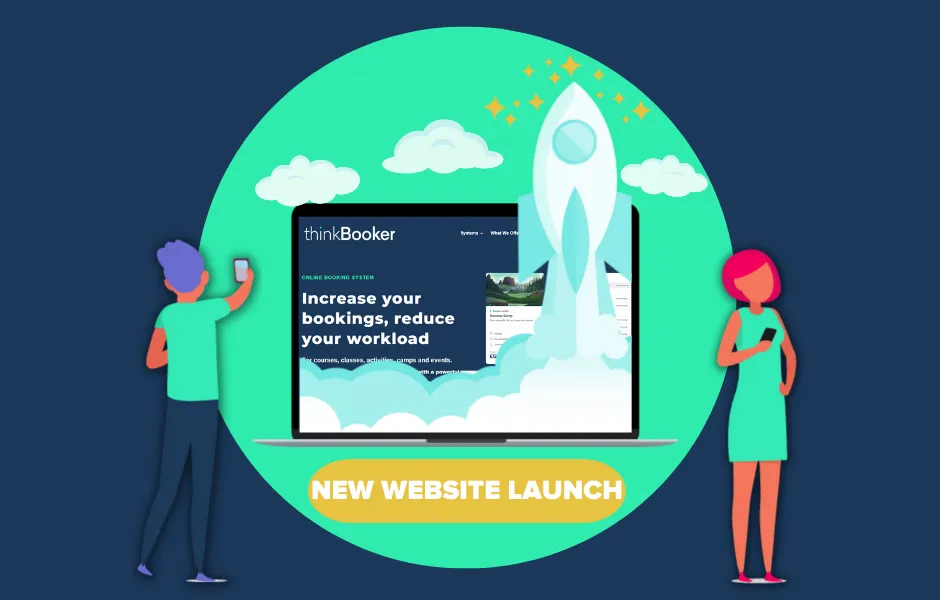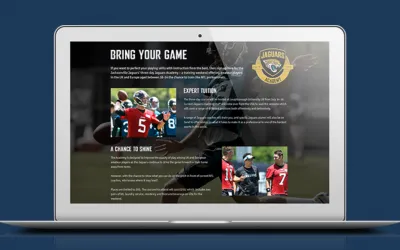Everyone loves bringing new customers into the business. Convincing them that your products, services and the value you can add will be of benefit to them. For training providers, this invariably means getting new clients to take up places on the courses being run, whether that be due to the ease of signing-up and booking, the cost of the course or the expertise of the trainer.
But the real juice and the long-term value of every new customer you get to sign-up comes from being able to convince them to keep coming back.

New customers help your business grow, returning customers make it thrive
Sustainable businesses are built upon the foundations of a customer-base satisfied enough to keep returning to your training courses.
Why?
- A 5% increase in customer retention can increase profit by 25 – 95%
- Customer acquisition is 5x more expensive to a business than customer retention
- Returning customers are 50% more likely to buy something new from you than new customers
- You are 3x more likely to sell a product or service to an existing client than a new one
- Existing customers spend, on average, 67% more than new customers
[Sources: Invespcro.com & Biz Journals]
Let’s explore this a little bit more.
Loyal Customers keep your costs down and your profits up
Question: Why does it cost more to acquire new customers than it does to retain them?
Answer: Marketing.
To get new delegates onto training courses or attending your events then you need to market them. There are, of course, costs, associated with running a marketing campaign from which you would hope to gain success.
A cost to the time it takes to set up, run and manage as well as the financial outlay you will invariably need to make.
By increasing your existing base, these costs can be better controlled and more efficiently spent.
For one, the expense in marketing to existing clients is (or should be) minimal. There’s already a connection, a relationship and mutual knowledge of each other.
And, of course, a database of clients with whom to engage.
When it comes to getting ‘bums on seats’ on your courses, then your existing clients offer a rich and cost-effective source, who are a lot more likely to sign-up on the back of a previously positive experience.

[Source: Walker]
Existing Customers Help You Acquire New Customers
Of course, you still need new customers if you’re looking to grow your business. But the opportunity to find these new clients is considerably advanced if you already have a strong and loyal pool of existing customers.
After all, people talk (and move between organisations), and word of mouth recommendations remains the best (and least costly) form of marketing.
If they have a positive perception of your training courses, events and the customer experience you provide, then you are creating advocates for your brand that will bring new opportunities to your door.

B2B Training Providers Need to Invest in the Customer Experience
There have been many reports and analyses made in the retail and B2C sectors to demonstrate the importance of personalisation and customer experience in retaining customers.
Well, the same things apply in the B2B sector as well, and the professional training arena is no exception.
To retain your customers, to make them happy to rebook time after time with you, and to instil a loyalty and advocacy for your courses, then you need to deliver on the expectations they have when it comes to customer experience.
Expectations that can be boiled down to three critical items:
- Personalisation
- Speed
- Simplicity
Personalisation
It’s not enough to simply offer a generic, one-size fits all service anymore.
If a company is going to be sending employees onto your training courses, then they need the confidence that you understand their business and their needs.
Training and staff development is a major investment in a business and a vital service to their organisation. They need to work with people they can trust, who know what they need and when they will need it.
For instance, are you able to send out reminders that an accreditation is due for renewal? Or target specific training courses towards staff members whose jobs would benefit from it?
Can your customers access their course history, find relevant courses? Can they book places onto these courses through their own personal account or login?
What about after a placement has been booked?
Customers need to know they are valued through every engagement and interaction you have with them, and that you are putting their best interests first.
For instance, what if something has changed about the course; a later starting time or change of venue?
How easy is it for you to communicate this to the delegates, to ensure that they are all informed and up-to-date on the course they have invested in?
Or what about post-course?
How do you gauge their feedback and, importantly, how do you record and respond to this feedback?
Understanding what benchmarks and expectations your customers have, and demonstrating a willingness to listen and react is at the heart of an ongoing personalised relationship.
Speed
Speed equates to efficiency and if you can help a business maximise its efficiency with fast, responsive service, then you have a better chance of retaining their custom in the long term.
Consider the full customer journey that an organisation and how you are able to speed up processes within this journey.
For instance:
- How fast do you respond to customer queries, enquiries or other service issues?
- How fast is the booking process?
- Do you offer an online self-service option that your customers can quickly access and use?
Simplicity
The easier you make things for your customer, the greater the convenience. Meaning better customer experience, satisfaction and loyalty.

[Source: Walker]
A report into customer expectations from CX specialists Walker highlights that upwards of 90% of B2B customers questioned rated simplicity in the customer journey as having high importance.
For a training provider this means challenging your processes to ensure that you’re delivering a simple, unobstructed pathway to signing up and onboarding on your courses and events.
How many barriers are you inadvertently putting up in the customer or booking journey, for example?
- Course information that’s hard to find
- A series of back and forth emails before booking
- Long-winded sign-up forms
- Inability to sign-up and register online
- Complicated or admin heavy payment process
Summary
Professional B2B training is a tough and competitive landscape, and the quest to fill spaces on courses is an ongoing process.
But like all organisations and industries, having a loyal and engaged customer-base, who will not only keep returning to you but also provide that priceless word-of-mouth referral, is the foundation of a long-term, sustainable and growing business.
To enable this, training organisations need to be able to meet the expectations of their customers, to provide a service and journey that’s personal to them, simple and fast.
Which means ensuring you have the right processes in place, and the right tools to do the job, effectively, efficiently and consistently well.
At thinkBooker, we specialise in online booking systems for training courses, classes, activities and events – optimised for efficiency, growth and ongoing client satisfaction.
Browse the site to learn more about course booking systems, sports booking systems, event booking systems and more, or get in touch directly to find out how we can help you.



